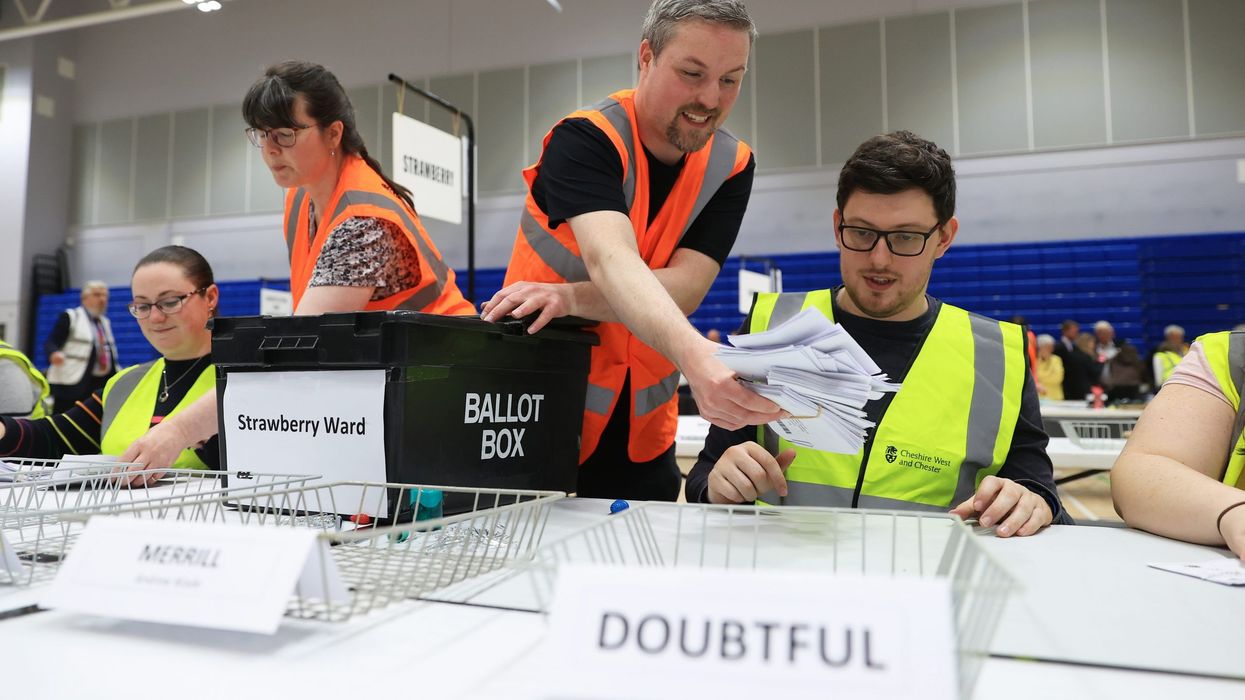Over 13,000 individuals experienced the denial of their voting rights in the English local elections this month, due to the implementation of the government's new identification law, according to a Reuters survey of local authorities.
The impact of this measure was particularly felt in disadvantaged areas.
The May 4 elections marked the first-time voters in England were legally obligated to present photo identification, a requirement justified by the government as a necessary step to combat election fraud.
However, critics, including opposition politicians and campaigners, expressed their disapproval of the reform, arguing that it aimed to suppress voter turnout and was disproportionate considering the historically minimal instances of in-person electoral fraud in Britain.
Additionally, the statement made by Jacob Rees-Mogg, a former government minister at the time the law was enacted, highlighted that the measure had a notable impact on elderly voters who typically supported the ruling Conservative Party, suggesting that the government may have hoped for a different outcome.
"Parties that try and gerrymander end up finding their clever scheme comes back to bite them, as dare I say we found by insisting on voter ID for elections," he told the National Conservatism conference.
According to data collected by Reuters from 202 out of the 230 authorities in England that conducted elections, the governing Conservative Party experienced significant losses. The remaining 28 authorities either did not respond to Reuters' request or were still in the process of compiling the data.
Among the top 20 councils that rejected voters, 15 of them were identified as some of the most deprived areas in England, based on the government's deprivation index.
Clive Betts, a politician from the opposition Labour Party and the chair of a parliamentary committee tasked with examining the new regulations, expressed concern that these rules were eroding and undervaluing the democratic process.
A government spokesperson said, "We are encouraged by the roll-out and we are confident the vast majority of voters will have cast their vote successfully."
Actual impact could be higher
In addition, Betts commented that the actual number of individuals prevented from voting is likely to be significantly higher, as some individuals who lacked the necessary identification may have chosen not to go to the polling stations at all.
According to the findings by Reuters, a total of 33,509 people were initially denied a ballot paper at the polling stations due to insufficient ID. Out of those individuals, over 20,000 eventually returned with the appropriate identification, while 13,085 did not.
The data collection process involved compiling information from various sources, including online publications, requests made through phone and email, as well as submissions obtained under the Freedom of Information Act.
However, due to certain local authorities providing only the total turnout figures, which included postal votes that did not require identification, it was not feasible to establish a comprehensive national percentage of voters denied the right to vote at polling stations.
Among the councils that did provide relevant data, the proportion of voters turned away constituted only a small fraction of the overall voter population, with an average of 0.24% across 98 local authorities. It is worth noting that turnout in local elections tends to be lower compared to national elections.
Clive Betts of the Labour Party cautioned that unless the regulations were revised, a larger number of individuals could encounter difficulties in casting their votes in the upcoming national election anticipated to take place next year.
Wrong ID, no ID
Knowsley, an area the government ranked as the third-most deprived in England in 2019, had the highest percentage unable to vote, with 1.1% of those at polling stations not producing the correct ID by the close of voting, Reuters found.
Terry Byron, a councillor for the Labour Party in the area, said he had come across younger people who did not turn up to vote because they did not have ID, while elderly voters were more likely to go to the polling station and be denied.
Byron said this may have impacted the outcome of some elections because in his area his party lost one seat by only 79 votes.
Walsall, which the government says is among the 10% most deprived areas in England, was the local authority with the highest overall number of people who could not vote, with 767 of those turned away at polling stations not returning.
Rushmoor and South Oxfordshire, two wealthier constituencies, were among those with the lowest proportion of people turned away, the survey found.
Britain's voting regulator, the Electoral Commision, will publish its initial findings of a review of voter ID in June.
The government also intends to toughen the rules around postal voting and requirements for those who apply to vote on behalf of someone else.
(Reuters)




